This is the story of Shaykh Amadou Bamba, a spiritual leader who founded the Mouride sufi order in Senegal, emphasizing non-violence, patience and hard work. His journey from scholar to national hero showcases the blend of spirituality and humble resistance in Senegambian culture.
Sufism is centered on Islam’s spiritual aspects, seeking a deep connection with Allah (God) through actions which purify the heart. It is often guided by mystical leaders known as shaykhs or saints, who lead a tariqa (meaning path or order). The Mouride is one of many sufi tariqas.
Early Life of Shaykh Amadou Bamba
Born in 1853 in Mbacké, a small village in the Kingdom of Baol, part of modern-day Senegal, Shaykh Amadou Bamba was raised during a time when French colonizers were tightening their grip on West Africa.
His father, Momar Anta Sali Mbacké, was a well-known religious leader (of the Qadiriyya tariqa). He provided a strong Islamic education to his son.
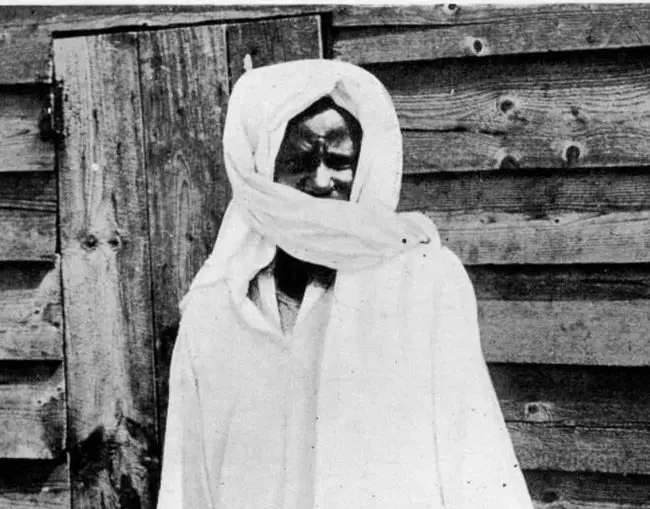
Shaykh Amadou Bamba.
The Making of a Mouride Leader
In his thirties, Amadou Bamba’s reputation as a devout Muslim and scholar began to spread. In 1883, he recieved the Wird (a set of spiritual practices) from the Prophet Muhammad (ﷺ) in a vision and established the Mouride Order.
Central to Mouride ideology is the concept of “Tarbiya,” or spiritual nurturing. Disciples (followers) are guided by a spiritual leader (Marabout) on the path to enlightenment and closeness to God. This relationship is characterized by a deep sense of loyalty, respect, and mutual commitment. Bamba’s emphasis on hard work and self-reliance also led to the development of a strong work ethic among his followers.
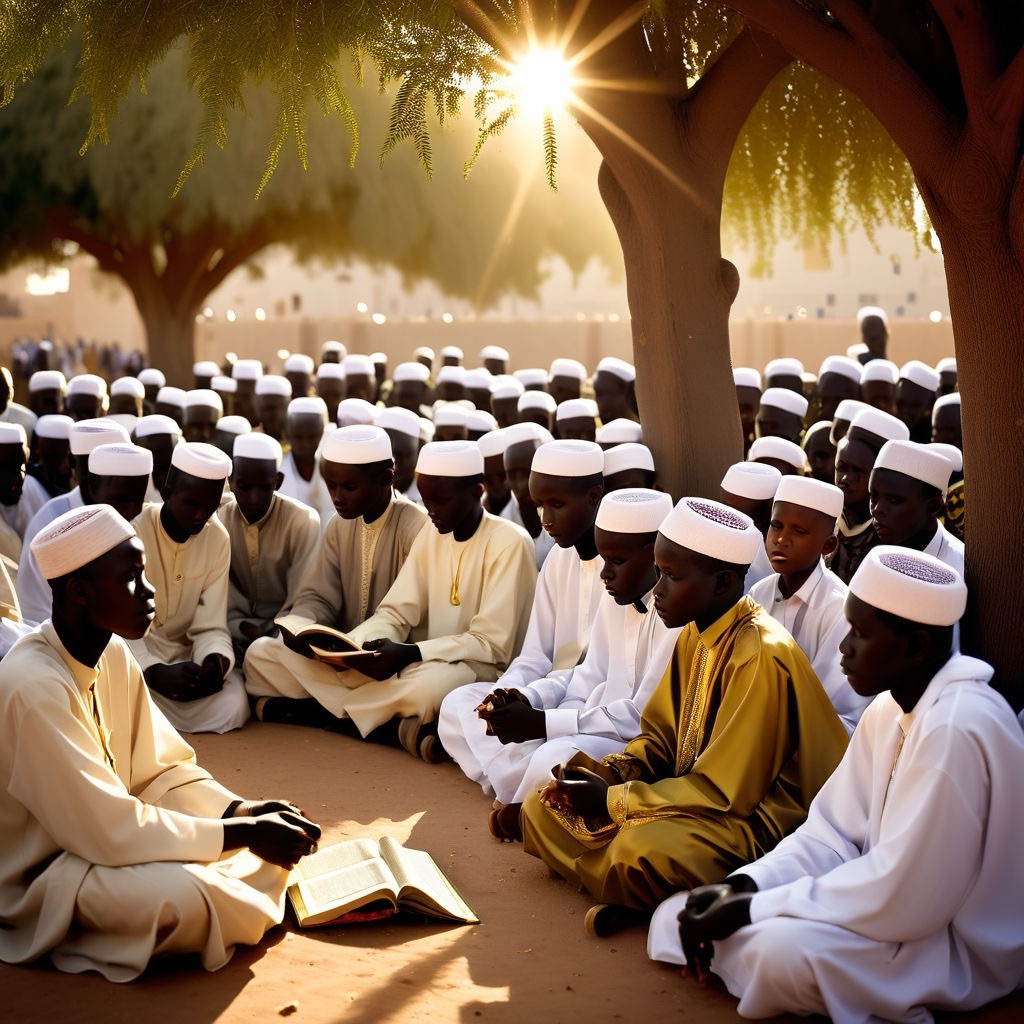
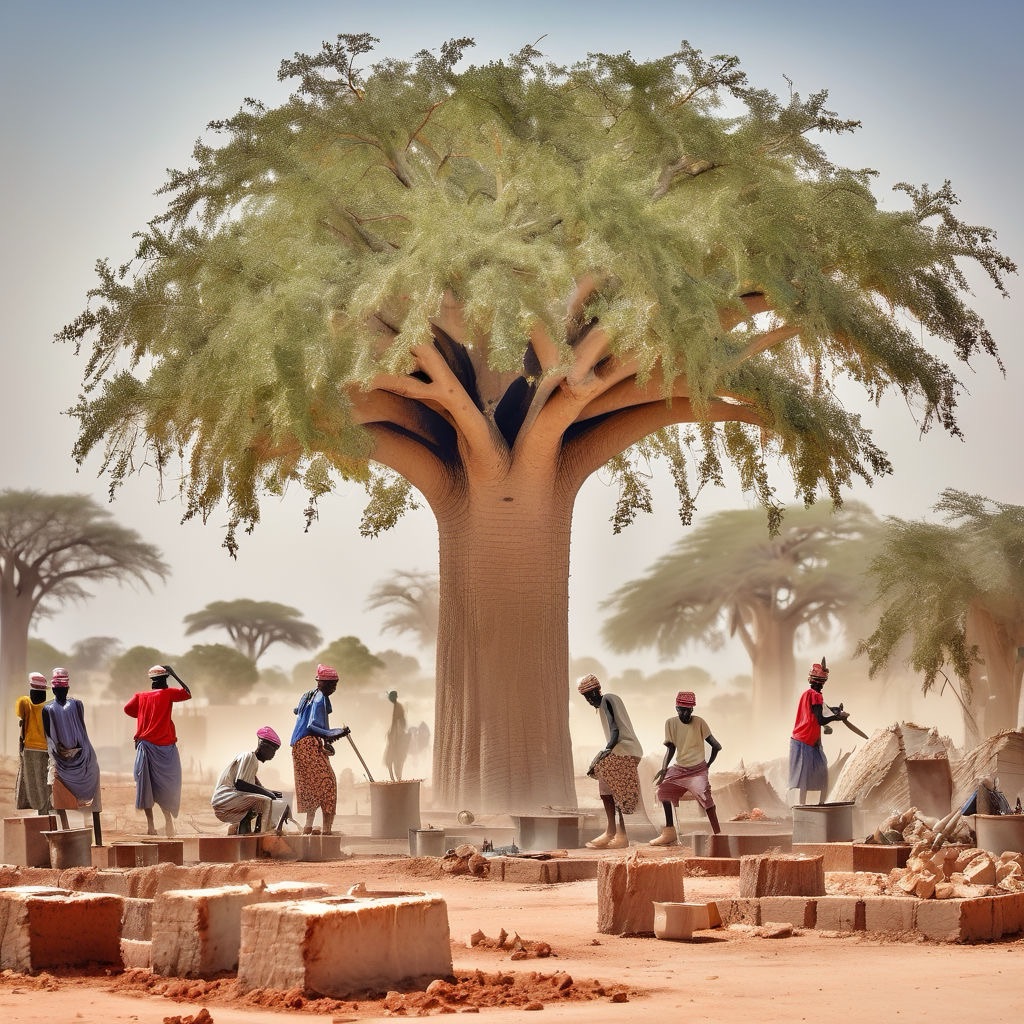
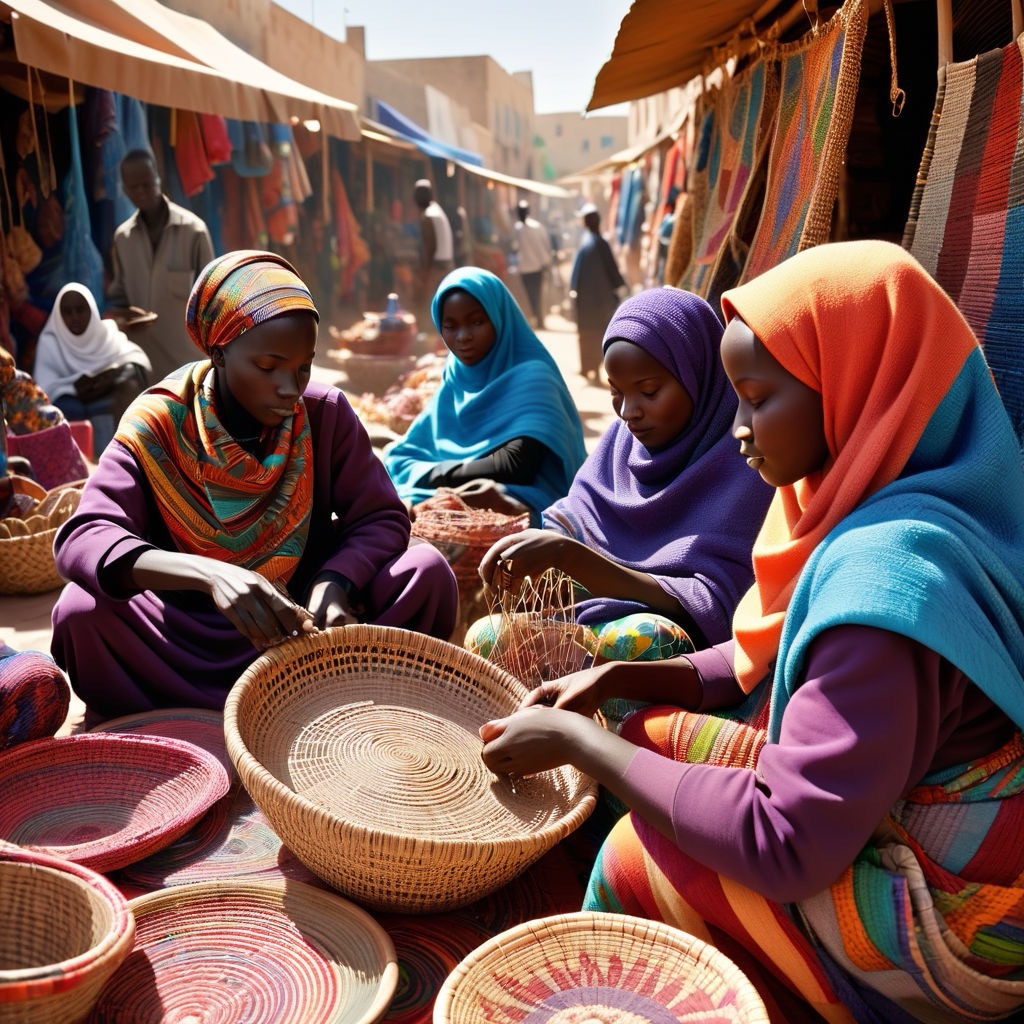
Shaykh Amadou Bamba's Exile and Resilience
In the late 19th century, the French colonial administration in West Africa was increasingly wary of indigenous leaders who had significant influence. Shaykh Ahmadou Bamba, hence was perceived as a potential threat to their control. Bamba’s teachings emphasized self-reliance and devotion to God, which resonated with the local population, thereby challenging the colonial power structure.
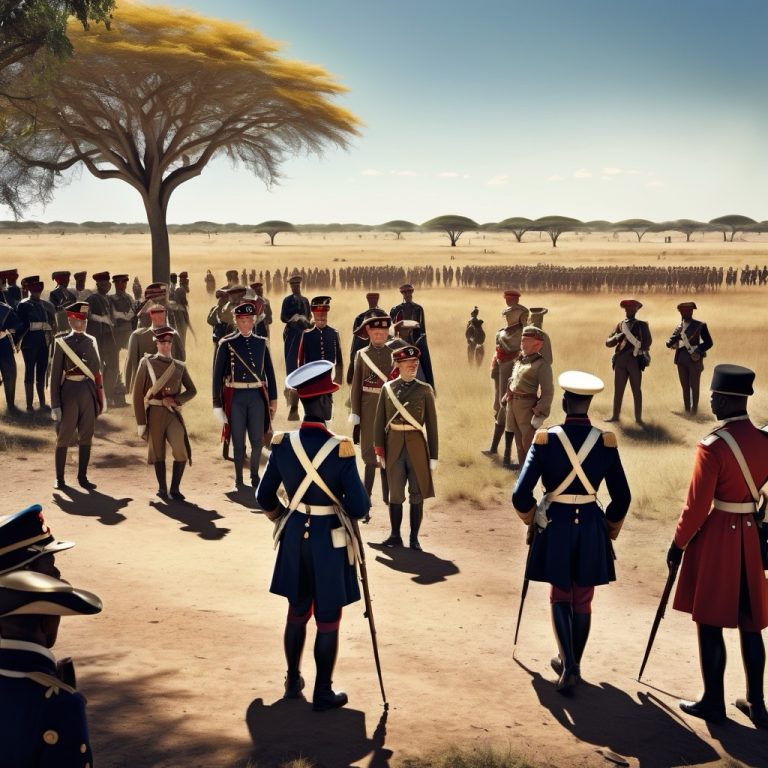

The First Exile to Gabon
In 1895, the French authorities sent Bamba to Gabon, a distant and unfamiliar land from Senegal. This exile lasted seven years, from 1895 to 1902. There Bamba faced numerous hardships, including isolation and harsh living conditions. However, these adversities only strengthened his faith.
During his exile, Bamba demonstrated sincere patience and non-violent endurance. Bamba continued his spiritual practices with unwavering devotion. He spent his days in prayer, meditation, and writing, producing many of his renowned qassidas (religious poems) that taught the virtues of Allah, the Prophet Muhammad (ﷺ), and the principles of Islam.
The Second Exile to Mauritania
Despite his return from Gabon in 1902, Bamba’s troubles with the French authorities were far from over.
In 1903, the colonial administration sent Bamba into exile again – this time to Mauritania.
This second exile lasted until 1907. Although the conditions were harsh, Bamba’s profound faith and steadfast commitment to his spiritual mission remained unbroken, as he continued to demonstrate to his followers the actions of a pious muslim – even under restraint.

Legacy of the Exiles
The periods of exile are viewed as defining moments in Bamba’s life. They demonstrated his unshakeable commitment to his faith and mission, as well as his extraordinary capacity for non-violent endurance. Despite the colonial authorities’ attempts to diminish his influence, Bamba’s exiles had the opposite effect, solidifying his following and expanding his reach. Also, miraculous stories of his survival, enhanced the mystical aura surrounding him and solidified his status as a saintly figure.
Key Practices of the Mouride Order
The Mouride Order is distinguished by several key practices that reflect its spiritual and social ethos. Among these practices, the most notable are:
The Wird (Spiritual Litanies): Mourides engage in regular recitations of specific prayers and litanies, known as Wird, which are believed to purify the soul and bring the practitioner closer to God.
Work Ethic: One of Bamba’s core teachings is the importance of manual work. Mourides believe that hard work and economic self-sufficiency are forms of worship. This has led to the establishment of successful agricultural sectors, particularly in peanut farming.
Qassidas (Religious Poems): Bamba composed many qassidas, which are religious poems that explain the virtues of Allah and the principles of Islam. These qassidas are not only literary works but also spiritual tools that aid in the followers’ religious education and practice. They are often memorized and recited by Mourides in groups, serving as a constant source of guidance. Check out Mouride Francophone’s YouTube channel to watch an authentic Qassida.
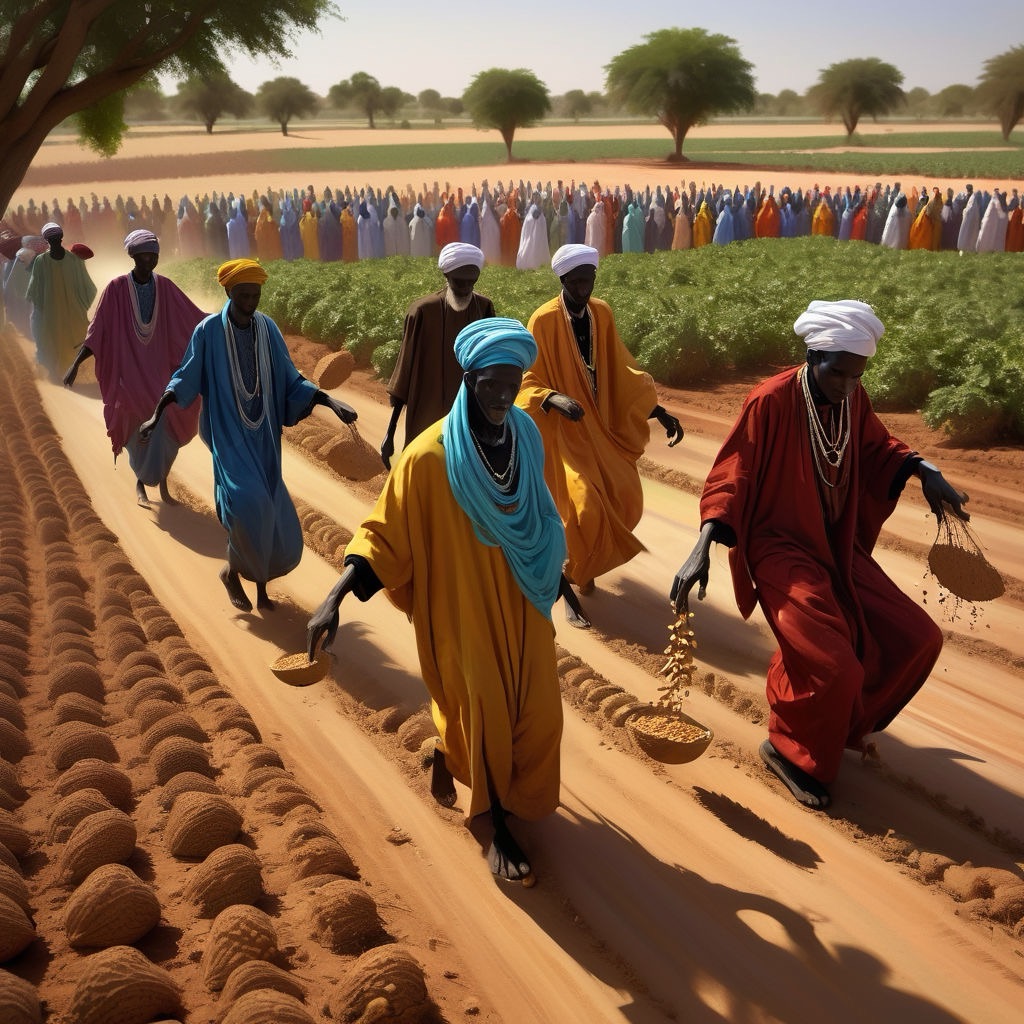
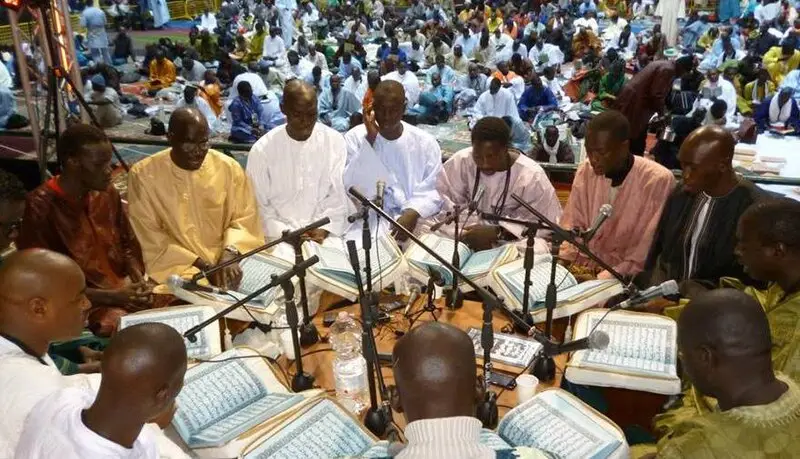
Qassida recitation by Mouride followers.
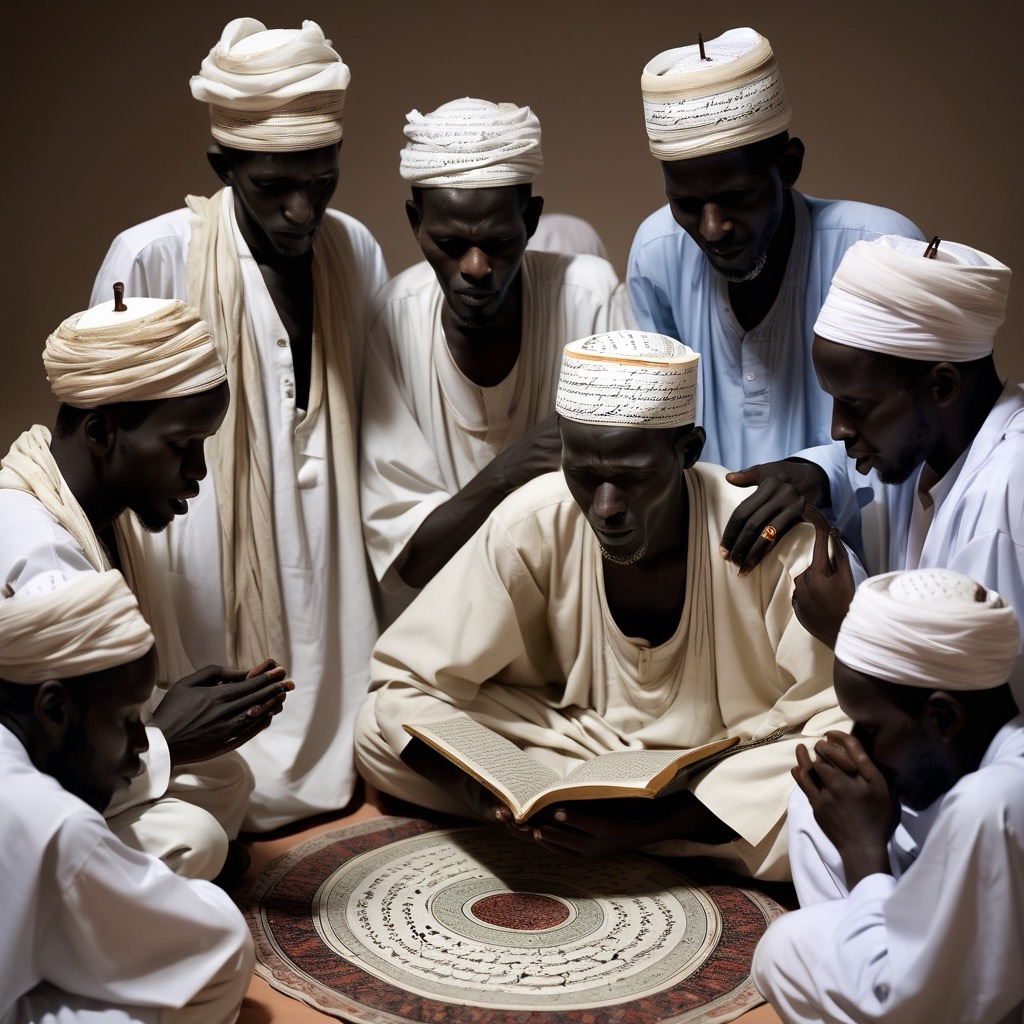
The Grand Magal of Touba
While the Hajj to Mecca remains a fundamental pillar of Islam, Grand Magal, is the most significant event for Mourides. Each year, hundreds of thousands of followers visit Touba on the 18th of Safar (the second month of the Islamic calendar) – and the day marking Bamba’s first departure from Senegal into exile.
During the Grand Magal, millions of Mourides from across Senegal and the diaspora converge on Touba. The city, which Bamba founded in 1887, transforms into a vibrant hub of religious activity, characterized by prayers, recitations of Bamba’s writings, and communal meals. The Grand Magal is not only a spiritual observance but also a demonstration of the unity and resilience of the Mouride community.
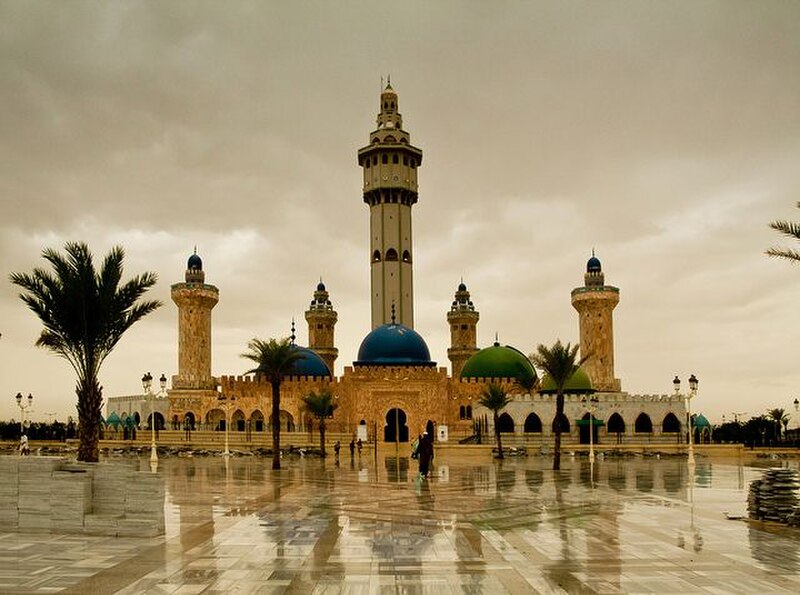
Grand Mosque of Touba.

Grand Magal Pilgrimage.
Impact on Senegambian Culture
Bamba’s influence extends far beyond the religious space, and is embedded in various aspects of Senegambian culture. His teachings have shaped the region’s social, economic, and political landscapes.
Social Cohesion: The Mouride Order has fostered a strong sense of community and social cohesion, which is intergral in today’s Senegambian society.
Economic Development: Bamba’s emphasis on hard work and self-reliance has had significant economic implications. The Mouride community has been instrumental in developing agriculture, trade, and small businesses. The entrepreneurial spirit of the Mourides has contributed to the economic vitality of Senegal.
Cultural Preservation: Bamba’s teachings have helped preserve and promote indigenous Senegambian cultural practices. The Mouride Order’s integration of local customs with Islamic principles has created a unique cultural identity that honors the region’s heritage while embracing Islamic values.
Political Influence: The Mouride Brotherhood has also played a role in the political sphere. While officially maintaining a stance of non-involvement in partisan politics, the Mouride leadership has considerable influence, often acting as mediators and advisors in political matters. Their moral authority and large following make them significant stakeholders in the country’s socio-political dynamics.
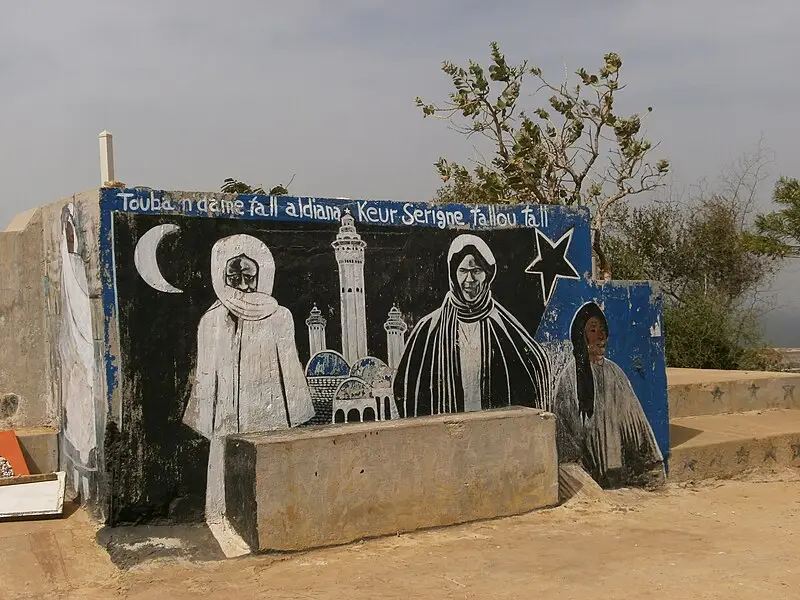
Street image of Mouride shayhks, e.g. Shaykh Amadou Bamba and Shaykh Ibrahim Fall.
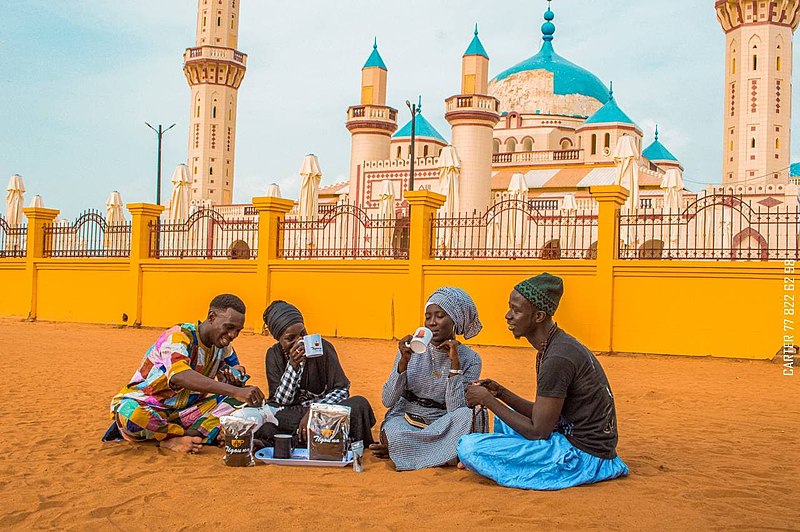
Senegalese youth hanging outside the Grand Mosque of Touba.
Baye Fall Movement
A sub-branch of the Mouride Order is the Baye Fall movement, founded by one of Bamba’s most devoted followers, Ibrahima Fall. Known for their distinctive patched clothing, dreadlocks, and music performances, the Baye Fall emphasize hard work and devotion, often engaging in communal labor as a form of worship. Journeyman Pictures have a great documentary on the Baye Fall and their pilgrimage to Grand Magal.
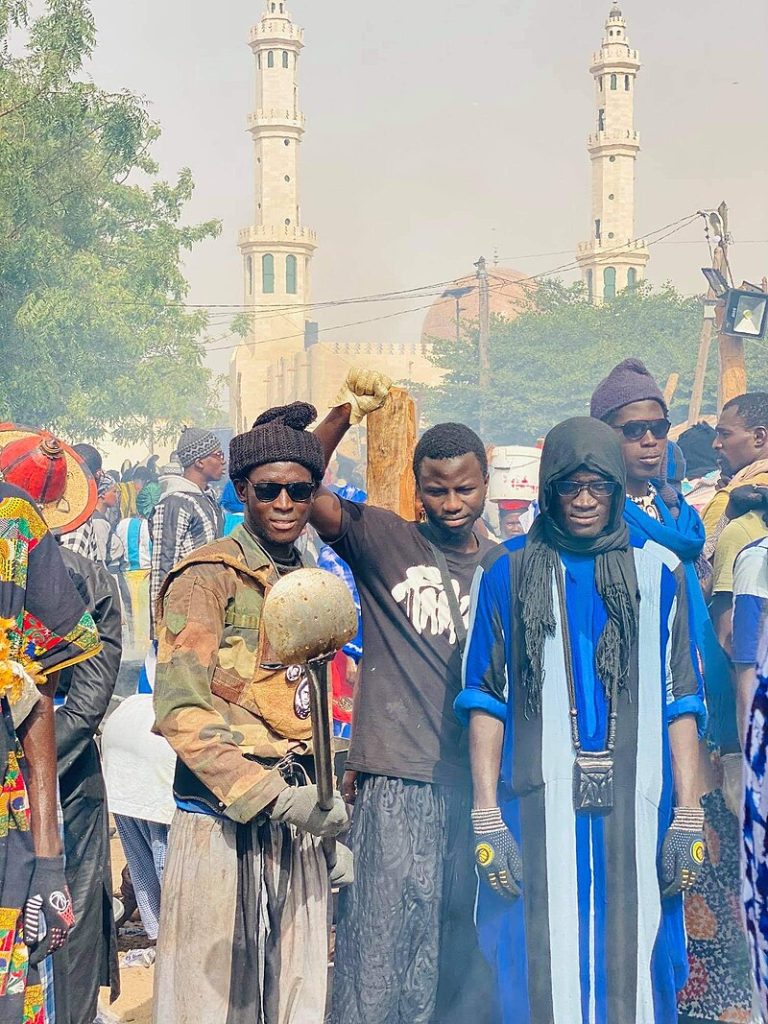
Baye Fall followers in congregation.
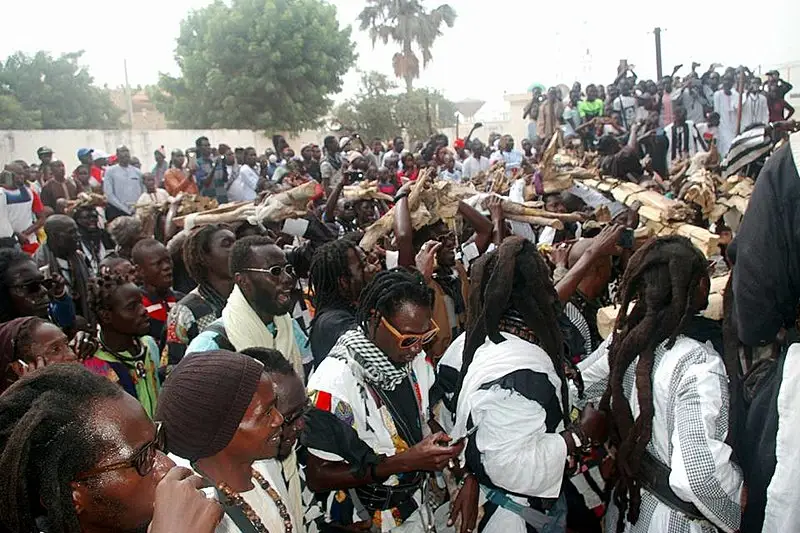
Followers of Baye Fall movement working as a form of worship.
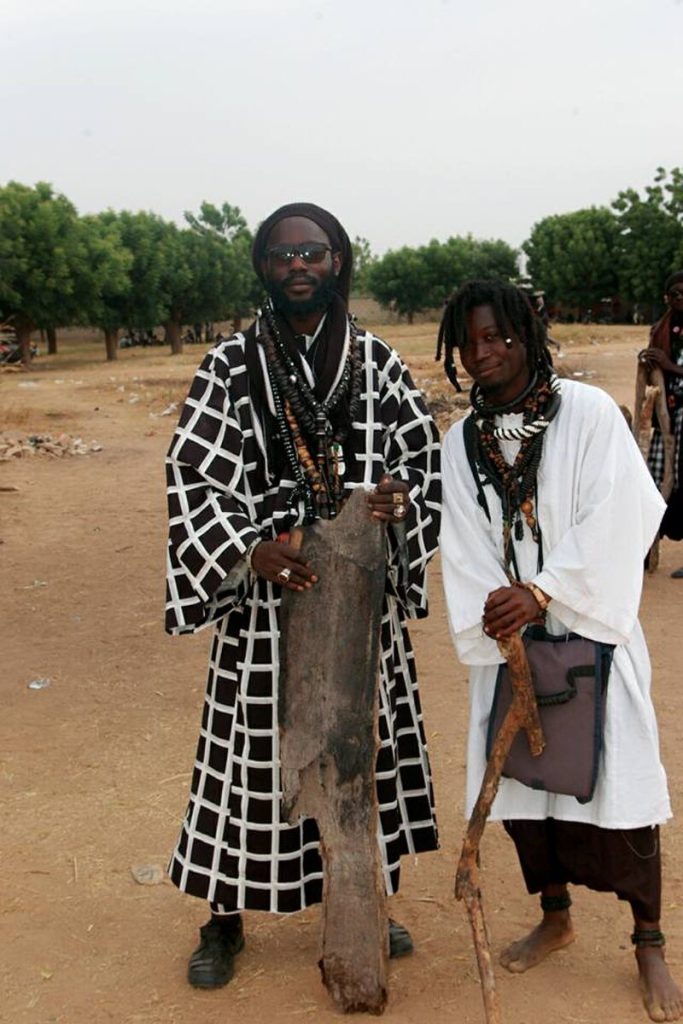
Baye Fall men working.
Conclusion
In summary, Shaykh Amadou Bamba’s life and the creation of the Mouride Tariqa are a powerful testament to islam, resilience, and cultural influence in West Africa. Bamba’s teachings on non-violence, hard work, and spiritual growth helped shape a Sufi order that’s still vital today. His exiles only strengthened his influence, solidifying his legacy.
The Mouride Order plays a key role in Senegalese society, promoting community, self-reliance, and spiritual dedication. The Grand Magal of Touba is a vibrant annual celebration that attracts millions, highlighting Bamba’s lasting impact. By blending local customs with Islamic values, the Mourides have created a unique cultural identity that honors their heritage and continues to inspire.
For more information on Shaykh Amadou Bamba, check out either Let’s Talk Religion or Cambridge Muslim Colleague YouTube channels, where the Shaykhs legacy is discussed in much more detail! Also, check out our piece on the Tijaniyya Order, another well known tariqa, prominent in west Africa.
Please note, all non-AI generated images are from Wikimedia Commons.

Thank you for the auspicious writeup. It in fact was a
leisure account it. Look advanced to more brought agreeable from you!
By the way, how could we keep up a correspondence? https://menbehealth.wordpress.com/
Hi there! Thanks for your feedback. We are available on instagram, substack, Pinterest @theculturemapper and on email via th**************@***il.com. Happy to correspond via any of these platforms